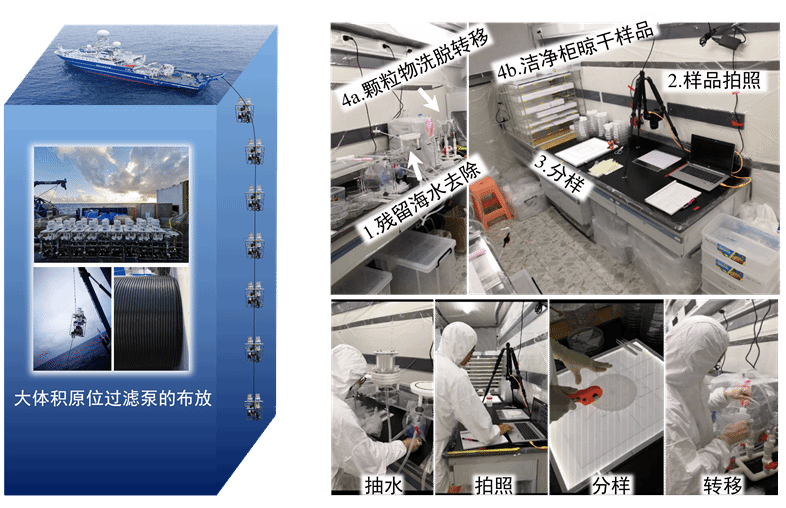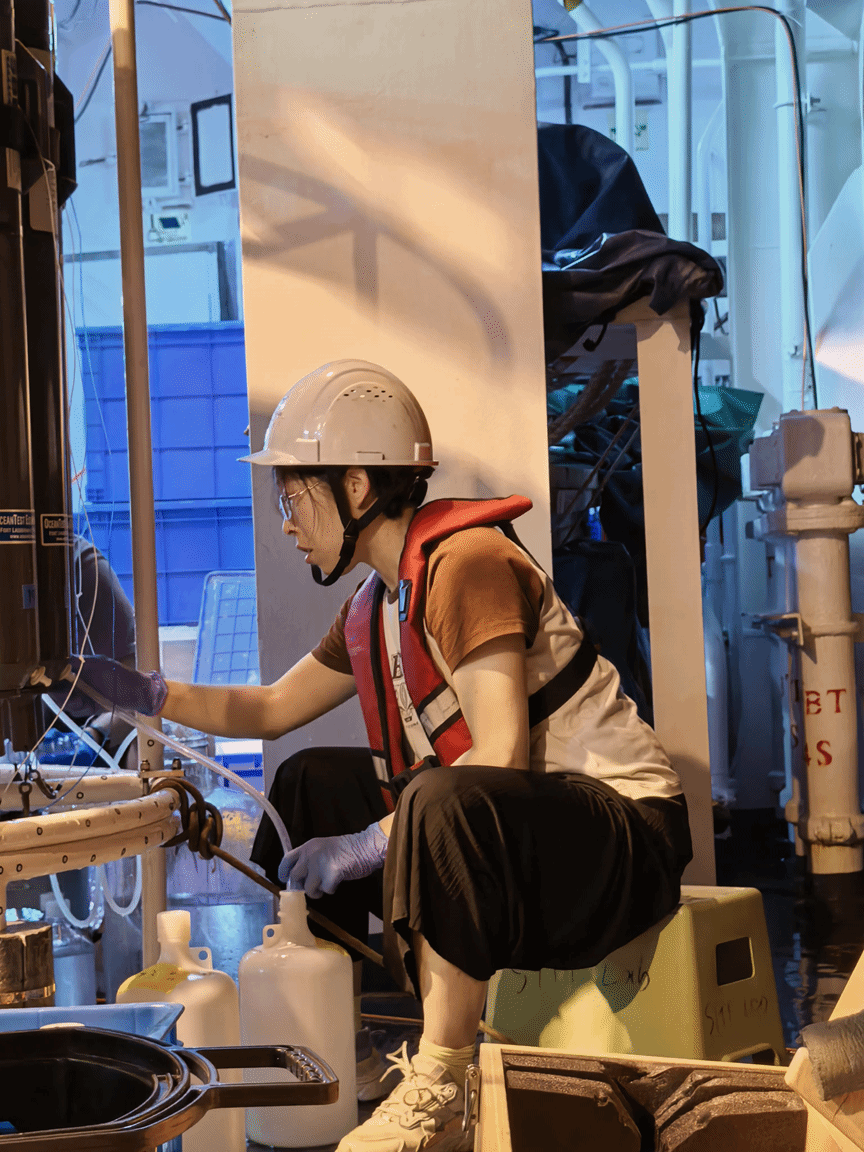In the vast expanse of the ocean, beyond the familiar presence of salt, fish, and corals, lie trace metals that occur in extremely low concentrations yet play a crucial role. They are like the “vitamins” of the ocean—minute in amount, but involved in nearly every aspect of marine life, from building cellular structures to synthesizing proteins. Some trace metals, such as iron (Fe), zinc (Zn), and manganese (Mn), are essential micronutrients for marine organisms; others, including copper (Cu), cadmium (Cd), and lead (Pb), can become potentially toxic when their concentrations are elevated. In addition, elements such as the rare earth elements (REEs) can serve as tracers that help identify water mass sources and track large-scale ocean circulation. Therefore, unraveling the biogeochemical cycles of these trace metals is essential not only for advancing knowledge of modern ocean ecosystems and their responses to climate change, but also for shedding light on the evolution of Earth’s past environments.
Dr. Kan Zhang’s exploration of marine biogeochemical cycles began with her research on the co-evolution of early life and the environment on Earth. During her doctoral studies, she established a precise quantitative dissolution method for rare earth element studies of bulk carbonate rocks, which laid the foundation for extracting robust paleo-oceanographic information from sedimentary records. Applying this method to the Mesoproterozoic type section at Jixian, Tianjin, she reported the first evidence of a paleo-ocean oxidation event dating back to ~1.57 billion years ago. She further proposed that this event was closely linked to the emergence of the earliest large multicellular eukaryotes, thereby challenging the prevailing view of a relatively stable surface environment during the “Boring Billion (1.8–0.8 billion years)”. These findings were published in Nature Geoscience (Zhang et al. 2018) and Chemical Geology (Zhang et al. 2015), with a Nature Geoscience News & Views article in the same issue highlighting the significance of this breakthrough discovery (Hammarlund. 2018).

Fig. 1. The process of clean sampling and sample pretreatment of marine particulate matter.
In her postdoctoral work, Dr. Kan Zhang extended her research from the ancient to the modern ocean. Leveraging her expertise in elemental geochemistry, she investigated the biogeochemical cycling of trace metals in marine particles, including iron, zinc, manganese, cadmium, copper, cobalt, lead, and rare earth elements. She took the lead in establishing China’s first clean sampling and analytical system for particulate trace element studies in the open ocean, and actively participated in several comprenhensive oceanographic expeditions. These include China’s first independently conducted GEOTRACES section cruise (an international program investigating the biogeochemical cycling of trace elements and their isotopes in the global ocean), the summer and winter cruises of the NSFC Major Program “Carbon-FE (carbon fixation and export in the oligotrophic ocean)”, the “Kuroshio Extension” cruise of the NSFC Shiptime Sharing Project, and the “PIN-Pump (nitrogen, phosphorus and iron regulation and evolution of the biological pump in the Northwest Pacific)” cruise of the National Key Research and Development Program. Drawing on first-hand observational data from the northwestern Pacific, her work not only advanced qualitative and quantitative understanding of the sources and biogeochemical cycling of trace nutrients in this region, but also offered new insights into the applicability and limitations of geochemical proxies in paleoceanography (2024 Limnol Oceanogr, 2025 Global Planet. Change).

Fig. 2. Dr. Zhang Kan collecting seawater samples on the R/V TKK
Kan’s future research will center on marine biogeochemistry of elements and isotopes, with research themes include but not limited to: 1) biogeochemical cycles of trace metals in the ocean; 2) multi-element stoichiometry of marine phytoplankton; 3) application of elements and their stable isotopes in paleoceanography research.
For more information about Dr. Kan Zhang, please visit her website https://mel2.xmu.edu.cn/faculty/kanzhang/, or contact her at zhangkan@xmu.edu.cn.
Personal Profile
Dr. Kan Zhang received her PhD in Geochemistry from the Institute of Geology, Chinese Academy of Geological Sciences in 2018. During her doctoral studies, she participated in a 14-month joint training program at the University of Leeds, UK. From 2019 to 2024, she pursued postdoctoral research at Xiamen University. In May 2025, she joined the Department of Marine Chemistry and Geochemistry at the College of Ocean and Earth Sciences, Xiamen University, as an Assistant Professor. And in August of the same year, she became a faculty member at the State Key Laboratory of Marine Environmental Science (MEL). To date, she has published multiple research articles in leading journals such as Nature Geoscience, Limnology and Oceanography, and Chemical Geology. Her honors include the “Li Siguang Outstanding Doctoral Student Award” — the most prestigious award for graduate students in the geosciences, and selection for the Postdoctoral Innovative Talent Support Program of the China Postdoctoral Science Foundation.